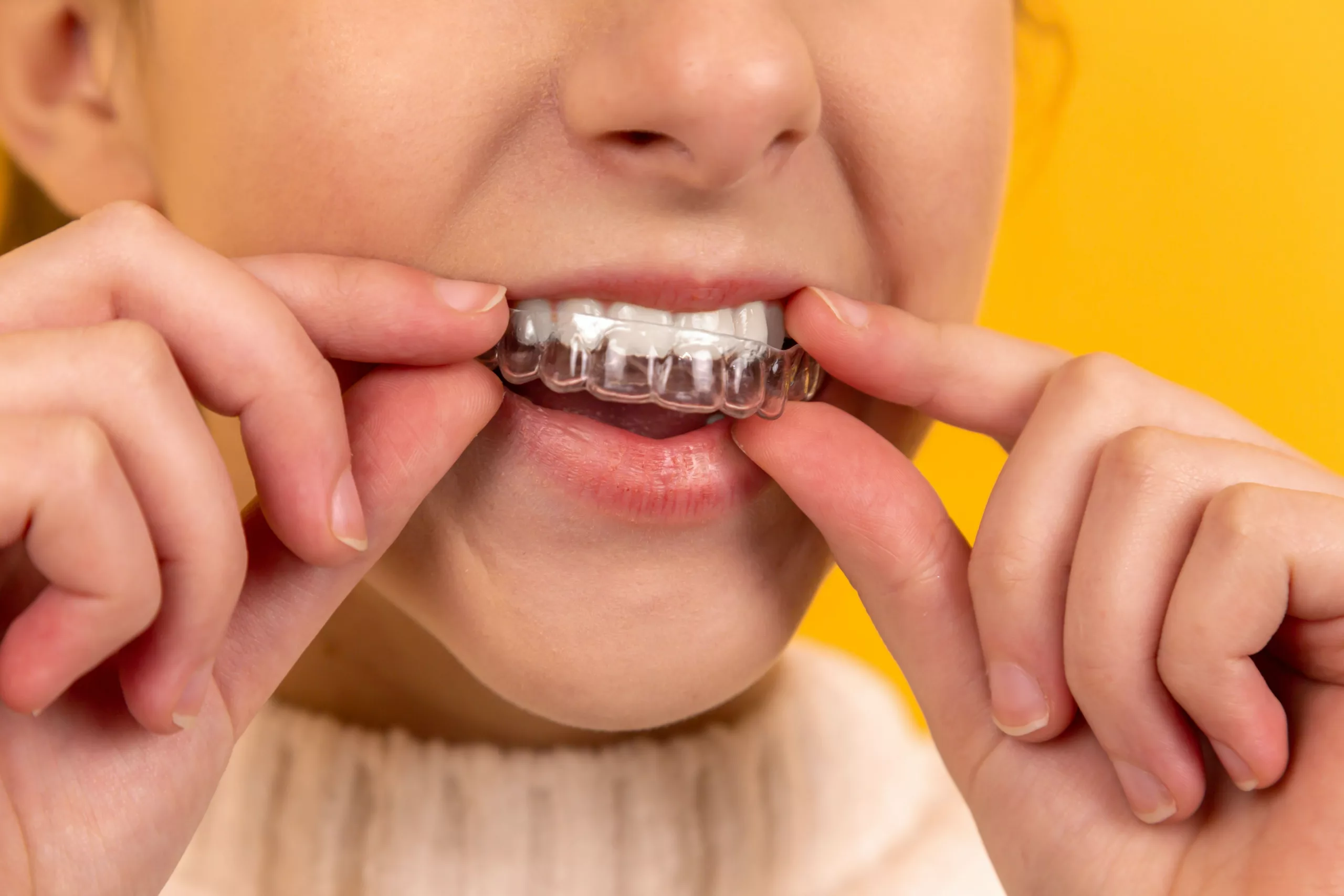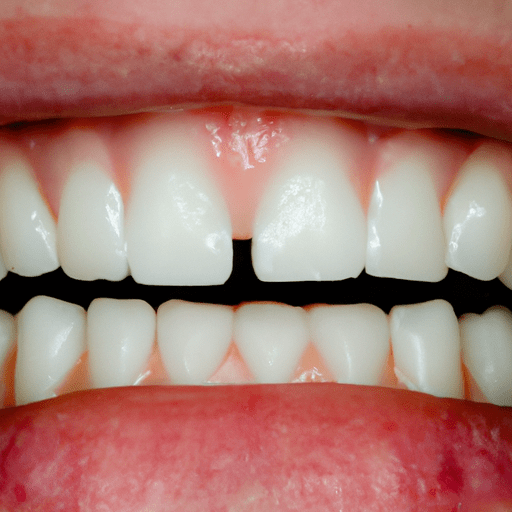Have you ever wondered if there’s a connection between your overbite and your snoring? Well, you’ll be intrigued to discover that indeed there is! It turns out that having an overbite can actually contribute to snoring. In this article, we’ll explore this fascinating relationship between overbites and snoring, shedding light on the potential reasons behind this connection. So, let’s uncover the mystery and find out how these two seemingly unrelated issues can actually be intertwined.

Understanding Overbites
Definition of Overbite
An overbite is a dental condition where the upper front teeth excessively overlap the lower front teeth vertically when the jaw is closed. While a slight overbite is normal, a significant overbite can cause various issues, including snoring.
Prevalence of Overbites
Overbites are quite common, with studies estimating that about 70% of the population has some degree of overbite. The severity of overbites can vary, ranging from mild to more pronounced cases. It is important to understand the causes and risk factors associated with overbites in order to better understand their connection to snoring.
Causes and Risk Factors of Overbites
Several factors can contribute to the development of an overbite. One common cause is genetics, as it can be passed down through generations. Other risk factors include thumb-sucking during childhood, pacifier use, mouth breathing, and certain oral habits such as tongue thrusting. Additionally, certain skeletal and dental abnormalities can also lead to the development of an overbite.
Health and Lifestyle Impacts of Overbites
Overbites not only affect the appearance and alignment of the teeth but can also have implications for overall health and well-being. One potential health impact of overbites is an increased risk of snoring. Overbites can alter the position of the tongue and throat muscles, potentially obstructing the airway during sleep. This obstruction can lead to snoring and potentially contribute to sleep apnea, a condition characterized by interrupted breathing during sleep.
Understanding Snoring
What is Snoring?
Snoring is a common sleep-related issue that involves noisy breathing during sleep. It occurs when the airflow through the mouth and nose becomes partially blocked, resulting in vibrations of the surrounding tissues. Snoring can range from mild to severe and can significantly impact both the snorer and their sleep partner.
Causes and Risk Factors of Snoring
Snoring can be caused by various factors, including anatomical abnormalities, nasal congestion, obesity, alcohol consumption, and sleep position. Additionally, certain medical conditions, such as sleep apnea and allergies, can increase the likelihood of snoring.
Health Effects of Snoring
While snoring is often seen as a mere annoyance, it can have significant health effects for both the person who snores and their sleep partner. Snoring can disrupt sleep patterns, leading to daytime fatigue, reduced cognitive function, and impaired concentration. It can also strain relationships, as the loud noise can disturb sleep partners and lead to sleep disturbances for both individuals involved.
Diagnostic Criteria for Snoring
The Diagnosis of snoring is typically based on the presence of loud, habitual snoring, often reported by a bed partner or family member. In some cases, a sleep study may be conducted to assess the severity of snoring and rule out underlying conditions such as sleep apnea.
Anatomical Connection Between Overbites and Snoring
How Overbite Affects Airway Passage
An overbite can affect the airway passage by altering the alignment of the upper and lower jaws. When the upper front teeth excessively overlap the lower front teeth, it can result in a more closed-off airway space. This restricted airway can lead to increased turbulence and resistance to airflow, potentially contributing to the development or exacerbation of snoring.
Position of Tongue in People with Overbites
People with overbites may experience a change in the position of their tongue. The excessive overlap of the upper and lower teeth can lead to a retruded or posteriorly placed tongue. This posterior tongue position can contribute to airway narrowing and obstruction during sleep, further increasing the likelihood of snoring.
How Overbite Impacts Throat Muscles
Overbites can also impact the throat muscles involved in breathing and maintaining an open airway. The altered jaw position and bite alignment can affect the coordination and strength of these muscles, leading to a higher likelihood of airway collapse or obstruction. This can result in the development or worsening of snoring symptoms.
The Role of Overbites in Sleep Apnea and Snoring
Possible Connection Between Overbite and Sleep Apnea
Research suggests a potential connection between overbites and sleep apnea, a condition characterized by repetitive pauses in breathing during sleep. Overbites can contribute to airway narrowing and obstruction, which are underlying factors in the development of sleep apnea. While more studies are needed to establish a definitive link, addressing overbites may be beneficial in managing sleep apnea symptoms.
How Overbites can lead to Snoring in Sleep Apnea Patients
In individuals with sleep apnea, overbites can worsen snoring symptoms. The compromised airway caused by the overbite contributes to increased airway resistance and turbulence, leading to louder and more frequent snoring episodes. Addressing the overbite through appropriate treatment options can help alleviate snoring in sleep apnea patients and improve their overall sleep quality.

Scientific Studies Supporting the Overbite-Snoring Link
Early Research on Overbites and Snoring
Early research studies examining the relationship between overbites and snoring found a significant association between the two. These studies reported that individuals with overbites were more likely to snore and experience sleep-disordered breathing. However, further research was needed to establish a more comprehensive understanding of this connection.
Current Studies on Overbites and Snoring
More recent studies have provided additional evidence supporting the link between overbites and snoring. These studies have explored the impact of orthodontic treatment on snoring reduction in individuals with overbites. The findings suggest that correcting overbites can lead to a reduction in snoring and improvement in sleep quality.
Contradictory Findings on Overbite-Snoring Relationship
While many studies have shown a positive association between overbites and snoring, some research has provided conflicting findings. These contradictory results highlight the complexity of the relationship between overbites and snoring, emphasizing the need for further research to fully understand the mechanisms involved.
Treatment Solutions for Snoring Due to Overbites
Orthodontic Treatment Options
Orthodontic treatment, such as braces or clear aligners, is a common option for addressing overbites. By gradually aligning the teeth and jaws into the correct position, orthodontic treatment can help alleviate airway obstruction and reduce snoring in individuals with overbites.
Surgical Interventions
In severe cases, surgical interventions may be necessary to correct overbites and alleviate snoring. Orthognathic surgery, also known as jaw surgery, can reposition the jaws and improve the alignment of the teeth. This can help widen the airway and reduce snoring symptoms by addressing the underlying cause.
Lifestyle Changes and Home Remedies
In addition to professional treatment options, certain lifestyle changes and home remedies can help manage snoring associated with overbites. Maintaining a healthy weight, avoiding alcohol and sedatives, sleeping in a side position, and using nasal strips or dilators can all potentially reduce snoring intensity and frequency.

Preventive Measures for Overbite-Related Snoring
Early Orthodontic Management
Early orthodontic intervention in childhood can play a crucial role in preventing or minimizing the development of overbites and related snoring issues. Timely evaluation and treatment by an orthodontic specialist can help identify and address potential orthodontic concerns, reducing the likelihood of snoring later in life.
Lifestyle Modifications
Adopting certain lifestyle modifications can also help prevent or manage overbite-related snoring. Maintaining good oral hygiene, avoiding habits such as thumb-sucking, and practicing proper breathing techniques can contribute to optimal oral and airway health, potentially reducing the risk of overbites and associated snoring.
Continuous Positive Airway Pressure (CPAP) Therapy
In cases where overbite-related snoring is accompanied by sleep apnea, continuous positive airway pressure (CPAP) therapy may be recommended. CPAP therapy involves wearing a mask that delivers pressurized air, keeping the airway open during sleep and preventing snoring and apnea episodes.
Patient Experiences and Case Studies
Success Stories of Overbite Correction Diminishing Snoring
Several patient experiences and case studies have documented successful outcomes in reducing snoring through the correction of overbites. These success stories highlight the positive impact that addressing overbites can have on snoring and overall sleep quality.
Less Successful Experiences and Challenges
While many individuals have experienced positive results from overbite correction, it is important to note that not all cases may be completely resolved. Some individuals may have less success in eliminating snoring or may face challenges due to other underlying factors. Each case is unique, and personalized treatment plans should be tailored to individuals’ specific needs and circumstances.
Potential Risks and Side-effects of Treatments
Risks Associated with Orthodontic Treatments
Orthodontic treatments, such as braces or clear aligners, are generally safe and well-tolerated. However, there are potential risks and side-effects to consider, including temporary discomfort, difficulty speaking or eating during the adjustment period, and the possibility of tooth or gum sensitivity.
Side-effects of Surgery
Surgical interventions for correcting overbites, such as jaw surgery, carry certain risks and potential side-effects. These can include infection, bleeding, TMJ (temporomandibular joint) issues, and numbness or altered sensation in the face or mouth. It is important to thoroughly discuss potential risks with the healthcare provider before opting for surgery.
Possible Complications from Lifestyle Changes and Home Remedies
While lifestyle changes and home remedies are generally considered safe, there may be some potential complications or limitations. For example, weight loss strategies need to be approached with caution and under the guidance of a healthcare professional to avoid any negative health impacts. It is important to discuss any lifestyle changes or home remedies with a healthcare provider to ensure their appropriateness and effectiveness.
Considering Professional Help
When to See a Doctor
If you or your sleep partner notice persistent, loud snoring that disrupts sleep or you suspect a potential overbite, it is advisable to seek professional help. It is especially important to consult a doctor if snoring is accompanied by other symptoms such as excessive daytime sleepiness, gasping or choking during sleep, or morning headaches.
Choosing the Right Healthcare Provider
When seeking professional help for overbites and snoring, it is important to choose the right healthcare provider. Dentists, orthodontists, and sleep specialists are experts in their respective fields and can provide appropriate evaluations, diagnosis, and treatment options based on individual needs.
Preparing for Your Appointment
To make the most of your appointment, it is helpful to prepare beforehand. Make a list of your symptoms, any questions or concerns you have, and any relevant medical history or previous treatments. Being prepared will help facilitate a thorough discussion with your healthcare provider.
Questions to Ask Your Doctor
During your appointment, don’t hesitate to ask questions to ensure a clear understanding of your condition and treatment options. Some questions to consider include asking about the potential effectiveness of different treatment options, risks and side-effects of specific treatments, and the expected timeline for treatment.
By understanding the relationship between overbites and snoring, individuals can be better equipped to identify potential issues and seek appropriate treatment when needed. Seeking professional help, making necessary lifestyle changes, and considering available treatment options can lead to improved sleep quality and overall well-being. Remember, addressing overbites and snoring is a step towards better sleep health and a happier, healthier life.






